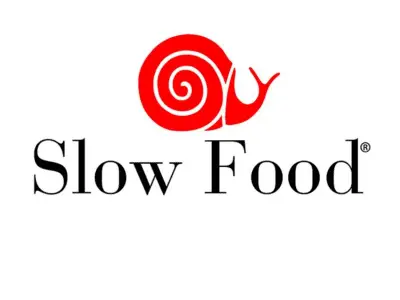If you’re like me, you’ve often asked yourself, “Why do Italians live longer and stay so trim while consuming daily portions of pasta?” Perhaps you even read the article debunking the notion that pasta makes you fat. Vindication for feeding my Italian daughter pasta every day!
Yes, for me, it’s comforting to see occasional examples of common sense and good science triumphing over fads and false hype. And yet it seems so challenging for logic to gain any traction when up against superior marketing.
The big consumer food brands must absolutely LOVE it when a new fad diet comes along.
Too much fat raises our cholesterol, scientists say. Great, let’s launch a brand of low-fat frozen turkey burgers. But wait, sugar is the real culprit! No problem, we’ll just replace the sucrose in our cookies with Splenda and put the good-tasting fat back in. Well, no, natural sugar is OK, it’s the gluten that’s making me feel bloated. We’ve got you covered there, too. With the help of our good friends at Monsanto, we’ve re-engineered our breakfast cereals to conform to your imaginary needs. You’re welcome!

Italians seem immune to all this, preferring mamma’s kitchen to anything dreamed up by the food scientist-cum-marketer at Nabisco or General Foods. Things are changing in Italy, for sure, but there’s still a huge gap in food attitudes between Italians and Americans (or other non-Mediterranean cultures).
Italian Diet vs American Diet
To gain some real-life insights, it would be instructive to simultaneously eavesdrop on two random social events; one in Italy and one in the U.S. Notice something in common? Yes—sooner or later, both conversations turn to eating.
But notice the difference. In the U.S., they’re all discussing saturated fats, anti-oxidants, carbs, proteins, and various micro-nutrients. Trendy buzzwords are flung into the fray for good measure: detoxifying, ketogenic, and metabolically-optimized. In other words, they’re discussing diets.
Now listen to the Italian version of this conversation. Even if you don’t speak the language you can hardly miss the sentiments: Ho mangiato una mozzarella celestiale; una pizza buona da morire; un dolce paradisiaco! Un sogno! Un miracolo!
In contrast to their American counterparts, they’re actually talking about food.
What’s more, every adjective describes the miraculous nature of pleasurable eating, as if the food itself is a conduit to the divine. The excitement is over the exceptional taste and quality of the foods, not whether they conform to the latest fad diet prescription. Indeed, they couldn’t care less about that, it would seem.
Italian Life Expectancy
So the Italians get an extra five years over their American counterparts, and arguably, five GOOD years, as opposed to the American norm of spending your final years in a hospital bed or long-term care facility.
Why do Italians eat so much pasta? And if they’re indulging in all of this incredible food while ignoring their “diets,” why do Italians live longer than Americans? According to the World Health Organization, Italians have the 6th highest life expectancy in the world (at 84 years old) while Americans are languishing at number 46 (79 years old), just behind Estonia and just ahead of Panama.
The statistics further show that the U.S. spends much more money per capita on healthcare than any developed country in the world at $8,000 per capita. What’s more, the U.S. spends more money on prescription drugs than the rest of the countries in the world. Combined! And we’re still not very healthy.

The question remains: How can we explain these apparent contradictions?
Well, don’t bother asking an Italian because they can’t explain it to you. It’s not that they wouldn’t like to, but this knowledge is so innate that most Italians aren’t even aware that they possess it. The instincts are buried deep within their DNA, the evolutionary result of generations of discriminating eaters who could tell at a glance if a particular food was appealing or not.
The point is this: the time-tested traditions of the Italian kitchen contain more wisdom than any scientific study ever could. Doctors and scientists are very good at reductionist experiments, but ultimately these details add little, if anything, to our understanding of what it truly means to eat healthy—or more importantly, to be healthy.
Conclusions reached in the laboratory seldom translate to real-life benefits; indeed they often have the opposite effect. Even scientists themselves are starting to realize this. (NPR article: Scientist Debunks The “Magic” Of Vitamins) Nutrients can’t be accurately studied independent of the foods in which they’re found—our metabolic systems are much too intricate to be subjected to such easy analysis and explanation.
Slow Food vs Fast Food
Speed might be a good thing for race cars and root canals, but it does us no good when it comes to eating. Sadly, we’re seeing more and more fast food options these days, even in Italy. The marketers are very good at what they do and none of us are completely immune to their allure. Even if we outwardly renounce the food itself, the little jingles and slogans get stuck in our heads, so the subliminal message is our constant companion.
Thankfully there’s a group of Italian crusaders that refuse to back down from this fight against the Global Industrial (read: American) Diet. The group, appropriately enough, is called Slow Food (as opposed to fast food—get it?) and since its establishment in 1986, the movement has found support in over 150 countries.
The founder’s name is Carlo Petrini and he hails from the city of Bra, near Turin. His outrage was sparked by the opening of a McDonald’s in Piazza di Spagna in Rome. That particular battle was lost, but the war rages on in Italy, as well as in the U.S. where there are now over 225 local chapters who have taken up the cause.
Admittedly, we also run into some contradictions on this subject. As the name implies, slow food takes more time to prepare—and often more money to purchase. Nowadays it seems that you have to be fairly wealthy to eat like a 19th century Sicilian peasant. Shop the organic food aisle in any given grocery store and you’ll likely pay double of what you’d spend on their standard produce.
This shift has occurred gradually over time as we have gradually traded our time for more money in order to buy a higher “standard of living,” whatever that implies.
Now the middle class has access to designer clothes, giant screen T.V.s, and German automobiles. We have collectively decided that these things are more important than healthy meals and quality time spent with friends and family at the dinner table—and so our food distribution networks are set up to accommodate that choice. It’s going to take a considerable change in cultural mentality to reverse this trend. But one can always hope.
Why Do Italians Live So Long?
In a world where the pursuit of longevity remains an ongoing quest, Italians have long held a remarkable advantage. With their enviable lifespan, surpassing that of their American counterparts by more than five years, Italians have unlocked a secret to healthy living that has garnered international attention—the Mediterranean Diet.
Rooted in the rich culinary traditions of Italy and neighboring Mediterranean countries, this dietary approach has not only tantalized taste buds but also proven to be a fountain of health and vitality. By delving into the reasons behind Italians’ longer life expectancy, we can uncover the transformative power of the Mediterranean Diet and its profound impact on overall well-being.
The Reasons Italians Live Longer
The Mediterranean Diet has numerous health benefits in stark contrast to the Western dietary patterns, particularly the American diet characterized by processed foods, high sugar intake, and saturated fats. Extensive research has consistently demonstrated the superiority of the Mediterranean Diet in promoting overall health and reducing the risk of various chronic diseases.
Scientific evidence strongly supports the efficacy of the Mediterranean Diet over the Global Industrial (American) Diet in several key areas. Numerous studies have shown that following the Mediterranean Diet significantly reduces the risk of cardiovascular diseases compared to the Global Industrial Diet.
Adhering to the Mediterranean Diet is associated with lower levels of LDL (bad) cholesterol, higher levels of HDL (good) cholesterol, and reduced incidence of heart attacks, strokes, and hypertension. The diet’s abundance of heart-healthy monounsaturated fats from olive oil, nuts, and seeds, along with the inclusion of omega-3 fatty acids from fish, plays a vital role in protecting cardiovascular health.
Also, the Mediterranean Diet has been linked to a reduced risk of developing type 2 diabetes and improved glycemic control in individuals already diagnosed with diabetes. Research has shown that a Mediterranean-style eating plan led to a 30% reduction in the incidence of cardiovascular events in individuals at high risk of developing diabetes.
The diet’s emphasis on whole grains, legumes, fruits, and vegetables, which are rich in fiber and low on the glycemic index, helps regulate blood sugar levels and improve insulin sensitivity.
Moreover, the Mediterranean Diet has shown promise in cancer prevention. Studies suggest that adhering to this dietary pattern may contribute to a lower risk of certain types of cancers, including breast, colorectal, and prostate cancers.
The diet’s abundance of antioxidant-rich fruits and vegetables, as well as its inclusion of healthy fats from olive oil and fish, may help reduce inflammation, neutralize free radicals, and protect against DNA damage, thereby inhibiting the development and progression of cancer cells.
The Reason Italians Are So Healthy and Trim
When it comes to weight management, the Mediterranean Diet has demonstrated greater effectiveness compared to the Global Industrial Diet. Research has found that individuals following a Mediterranean eating plan experienced more significant weight loss and greater improvements in waist circumference and body composition compared to those on a low-fat diet.
The diet’s emphasis on whole, unprocessed foods, lean proteins, and healthy fats provides satiety while reducing the intake of refined carbohydrates and added sugars commonly found in the Global Industrial Diet.
However, at the end of the day, the most remarkable aspect of the Mediterranean Diet is its association with increased life expectancy and improved overall well-being. Multiple observational studies have consistently linked adherence to the Mediterranean Diet with a reduced risk of all-cause mortality and age-related diseases.
Why Do Italians Live Longer – Conclusion
The combination of nutrient-dense foods, including fruits, vegetables, whole grains, legumes, and lean proteins, along with moderate consumption of red wine and an active lifestyle, contributes to optimal health and vitality well into old age.
A plethora of scientific evidence supports the efficacy of the Mediterranean Diet over the Global Industrial (American) Diet in promoting overall health and reducing the risk of chronic diseases.
Its emphasis on whole, unprocessed foods, plant-based ingredients, healthy fats, and moderate consumption of red wine creates a nutrient-rich and anti-inflammatory dietary pattern that nourishes the body, protects against disease, and promotes longevity.
By examining these details, we can begin to unravel the secret to Italians’ longevity and gain invaluable insights into the remarkable health benefits of adopting a Mediterranean Diet. With each bite of vibrant produce, every drizzle of golden olive oil, and the shared joy of communal meals, we discover a path toward not only extending our lives, but also embracing a more fulfilling and nourishing approach to overall well-being.
References:
- Pounis, G., Castelnuovo, A., Costanzo, S. et al. Association of pasta consumption with body mass index and waist-to-hip ratio: results from Moli-sani and INHES studies. Nutr & Diabetes 6, e218 (2016). https://doi.org/10.1038/nutd.2016.20

